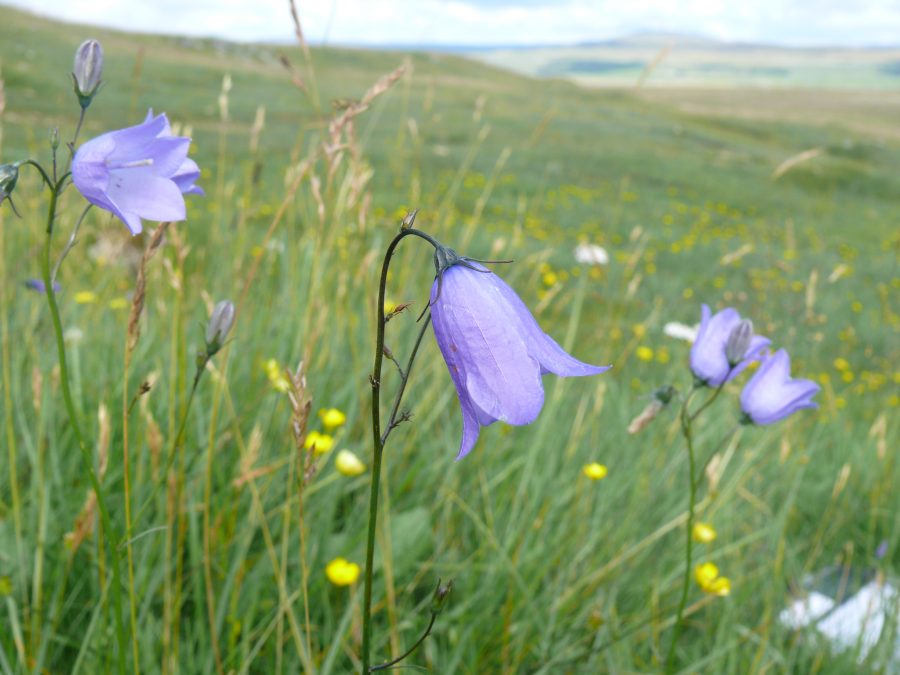New plant atlas is the most powerful statement ever produced on the state of our wild and naturalised plants.
Thousands of botanists from the Botanical Society of Britain and Ireland (BSBI) have spent the last twenty years collecting data on changes in the British and Irish flora. The results have now been published in Plant Atlas 2020 and four main trends have emerged since the 1950s:
- 53% of our native plants such as Heather and Harebell (pictured above) have declined in Britain due to human impacts such as agricultural intensification and climate change.
- non-native plants now outnumber native plants in the wild – this startling discovery has huge implications for the insects and other species that depend on our native plants.
- many non-native species are benign but some such as New Zealand Pigmyweed and Sitka Spruce have become invasive, disrupting ecosystem function and outcompeting native species.
- many mountain plants have declined due to climate change whereas some southern species such as Bee Orchid have benefited and spread further north.
Plant Atlas 2020 is the most in-depth survey of the British and Irish flora ever undertaken. It builds on two previous Atlas surveys3 undertaken by the BSBI in the twentieth century.
Julia Hanmer, BSBI Chief Executive, says: “Plant Atlas 2020 presents a powerful and concerning insight into the changing distributions of our wild plants.”
Many of the habitats our wild plants depend on have been impacted by changes in agriculture since the 1950s. Nitrogen enrichment, habitat degradation and changes in grazing pressure have led to the decline of species such as Heather and Harebell; damp meadows have been drained, leading to substantial declines in plants such as Devil’s-bit Scabious; traditional grasslands have been reseeded or overfertilised, and consequently 62% of our ancient arable wildflowers such as Corn Marigold have declined.
Dr Kevin Walker, BSBI Head of Science and Plant Atlas 2020 co-author, says: “There’s lots we can do to reverse these declines, but the most important are to increase the protection plants receive, extend the habitat available to them, and to place their needs at the very heart of nature conservation. We also need to ensure that our land, water and soil are managed more sustainably so that plants, and the species which rely upon them for food and shelter, can thrive.”
Craig Bennett, chief executive of The Wildlife Trusts, who helped fund the publication by Princeton University Press of Plant Atlas 2020, says: “The decline of our beautiful native plants is heart-breaking and has consequences for us all. The loss of natural habitats due to modern farming methods over the last 70 years has been an unmitigated disaster for wildflowers and all the species that depend on them including insects, bats and birds. But it’s not too late to stop this catastrophe.”
More news like this can be found in The Country Smallholder magazine. Subscribe here.
For FREE updates from the world of smallholding, sign up for The Country Smallholder newsletter here.








